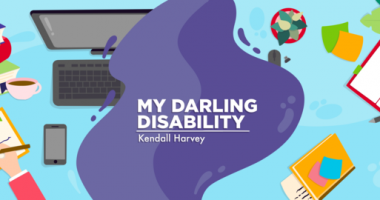I’ve been on Skyclarys for nearly 5 years. Here are my thoughts.
My disease progression since beginning the 1st Friedreich's ataxia treatment

Note: This column describes the author’s own experiences with Skyclarys (omaveloxolone). Not everyone will have the same response to treatment. Consult your doctor before starting or stopping a therapy.
When I was diagnosed with Friedreich’s ataxia (FA) in 2013, I was incredibly overwhelmed, to say the least. I’d never even heard of FA, let alone planned on waging a lifelong battle against this cruel disease. The worst part was being told there was no actionable hope. There weren’t any treatments then, and none foreseen on the horizon: There wasn’t anything publicly celebrated in the late stages of clinical trials, nothing awaiting approval from the U.S. Food and Drug Administration (FDA).
Being handed such a debilitating diagnosis without any hope to fight it felt isolating, even suffocating. I was forced to digest an incredibly bleak future of heartbreaking medical hardships, disabilities, and eventual death, with no tools to aid my battle or provide any kind of advantage.
Fast forward to 2018, when Reata Pharmaceuticals was recruiting for Phase 2 of a clinical trial that the FA community was optimistic about. In August 2018, I started the 48-week, double-blind, placebo-controlled study of omaveloxolone, knowing that my participation was in the name of science rather than a guaranteed access to treatment.
Even though everyone around me expected that the cure for FA would be a cocktail, we hoped that this drug would be a vital, results-showing, miraculous first ingredient that could at least slow my progression. My village waited with bated breath to see if this drug was “it” — the drug that would finally combat my DNA.
Now that I have been on the drug for nearly five years, it’s hard to put into words my thoughts. Since I don’t have two Kendalls living with FA, one on the drug and one not, I have trouble identifying its true impact on my progression.
Since my participation in the trial began, my FA-related symptoms have progressed and new symptoms have begun. As of February 2019, I’m 100% dependent on a mobility aid. I use my walker for every single move I make, aside from the times I depend on a wheelchair or electric scooter, when the terrain is tricky or taxing. Peripheral neuropathy is a debilitating and daily nuisance. My speech is slow and slurred. My fatigue is crippling.
With all that racing around my mind, it’s challenging to paraphrase my feelings about the recent FDA approval of my medicine, which now has the brand name Skyclarys and is our first FA treatment. I think about the hope this development would’ve given 2013 Kendall. I think about the validation it would’ve given 2018 Kendall — that all of the taxing requirements to participate in a trial halfway across the country were eventually going to prove themselves worth it. And I think about what it means to 2023 Kendall, too.
I celebrate the success with Reata and pat my fellow clinical trial participants on the back, full of gratitude and excitement. I’ll continue taking Skyclarys every morning, praying that this drug will work to slow my symptom progression today and every day.
I can’t stave off the creeping thoughts that twist my mind into a state of worry about how FA’s move into the category of treatable will affect future investments by the scientific community into treatment research. But I’ll continue doing everything in my power to help my community achieve that next ingredient in our curative cocktail. I’ll continue fundraising and advocating for our future, celebrating this battle victory while keeping in mind that we’re still at war, fighting for a cure.
I desperately pray that everyone continues to pursue the next advancement with urgency as we keep taking our Skyclarys every single morning. I remain full of hope that it’s having a positive impact while I patiently wait for the next big announcement.
“I have fought the good fight, I have finished the race, and I have remained faithful. And now the prize awaits me.” — 2 Timothy 4:7-8 (New Living Translation)
Note: Friedreich’s Ataxia News is strictly a news and information website about the disease. It does not provide medical advice, diagnosis, or treatment. This content is not intended to be a substitute for professional medical advice, diagnosis, or treatment. Always seek the advice of your physician or another qualified health provider with any questions you may have regarding a medical condition. Never disregard professional medical advice or delay in seeking it because of something you have read on this website. The opinions expressed in this column are not those of Friedreich’s Ataxia News or its parent company, BioNews, and are intended to spark discussion about issues pertaining to Friedreich’s ataxia.









Comments
Paul Konanz
Just read your Skyclarys column and am quite impressed with your writing skills and forthright sharing of your experiences. Kudo's! I see you are fairly prolific so tonight as I watch over my advanced FA'er sleeping I'll binge-read your articles! :-)
I hope articles like yours will help normalize and center expectations of Skyclarys. It is far from a cure but it is a good first step toward the cocktail of treatment drugs FARA speaks of. I suspect your experience will be more the average than the exception. Thanks again for some excellent sharing.
Susan Fallon
Hello, Paul. Found this article while looking for your name. Trying to see if fapg is still around. All I see are photos but no other posts. I followed it as far as yahoo groups but not sure what happened after that. Feel free to contact me directly. Thanks!
Pádraig Coyne
Thanks Kendall for sharing your experience and insight. Moreover, I thank you sincerely for 'fighting the good fight' towards FA treatments. You, and other participants in medical studies should be proud of your resilience and courage!
Lisa Archuleta
Thank you very much for your articles and your honesty. You, my son Sam and every FA’er are an inspiration!
SCAbbers
Thank you for sharing your experience. Small doubt: If you were in a double blind trIal, how can you be sure that you received the drug being tested (Omaveloxolone/Skyclarys in this case) and not the placebo?
Kendall Harvey
I enrolled in the open label extension phase of the trial in 2019 where I am guaranteed the drug, not the placebo.
Beryl Rogers
Kendall, my twin boys were diagnosed just before starting that same phase 2 trial, at the age of 18 (almost 19). They are 25 1/2 now. They are both still walking - using canes or an arm of someone nearby to balance - but like you, can’t tell how much (or little) the drug may have helped. We are thankful they had the opportunity to join the trial during phase 2 and they are still mobile, and we join you in praying for that next treatment that will slow/stop/reverse progression of this awful disease. Thank you for the eloquent article on your experience! Hugs and prayers to you.